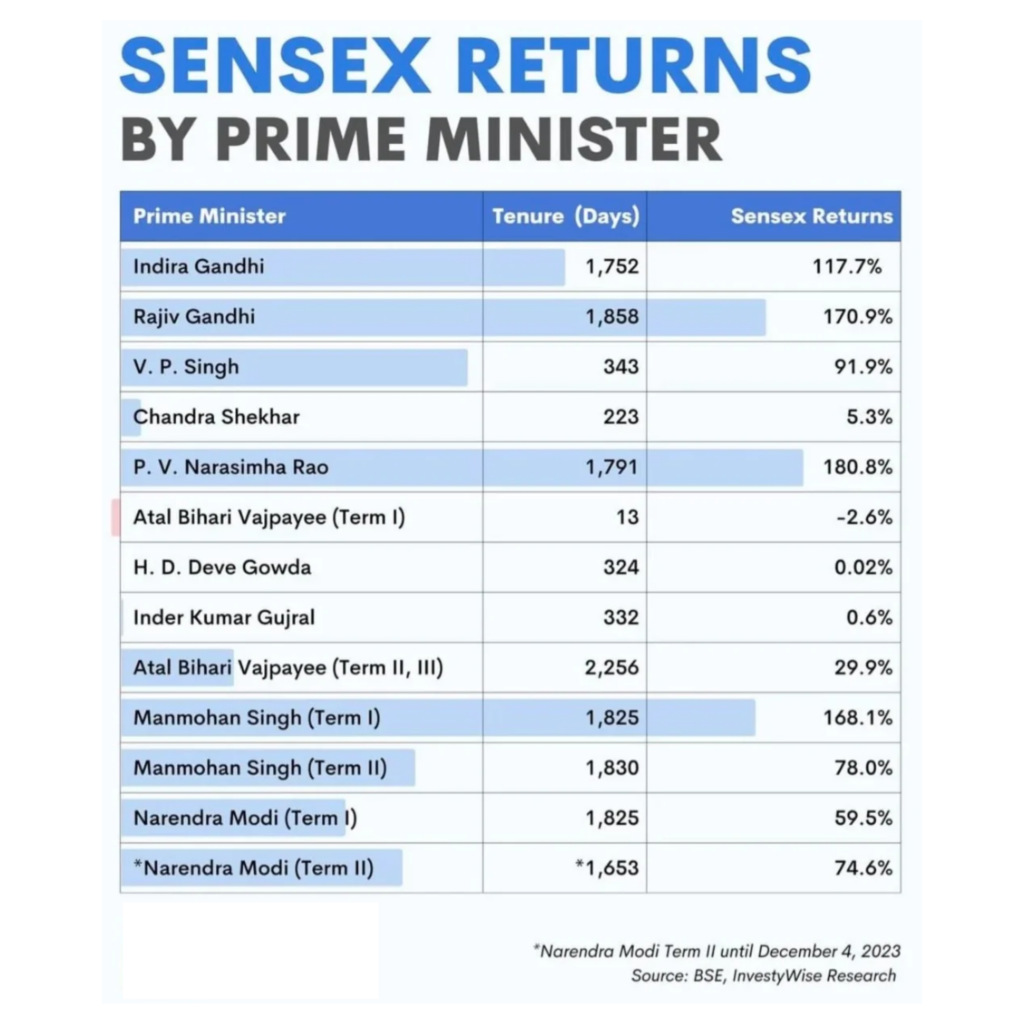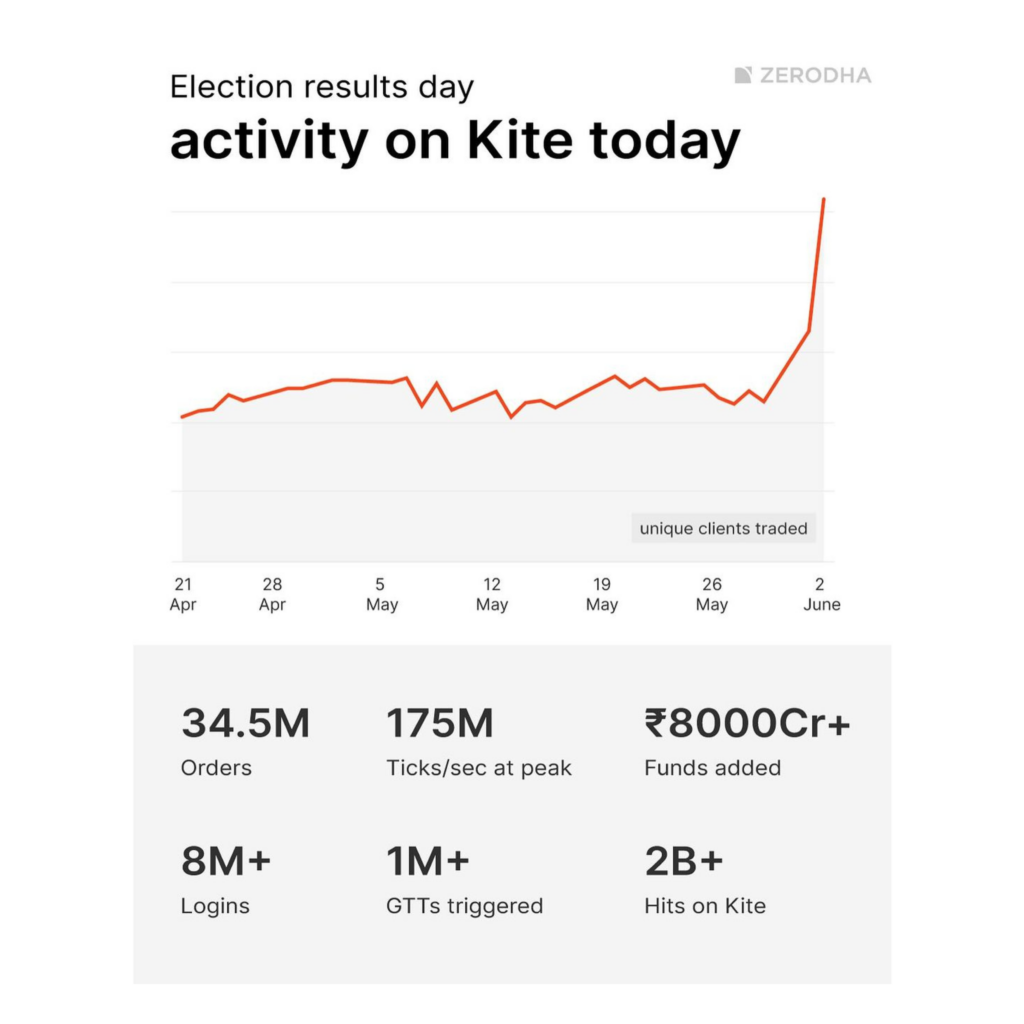Three Things are permanent in life: Death, Taxes and Surprises in Indian Elections. After 7 phases, 6 weeks and around 640 million votes counted, the world’s largest democracy threw some big surprises. Meanwhile, the Indian stock markets also reacted to each and every happening of the Election Phase; be it the Exit Polls, vote counting or the final results. Let’s dive deeper into understanding the implications of elections on the markets and economy as a whole.
Changes in governments or political parties and ideologies can cause changes in government policies, economic priorities, and regulations, affecting various sectors and companies. While elections create short-term volatility, the long-term effects are mostly shaped by the economic reforms and policies implemented by the ruling party. So, it has been seen that the markets react positively when it is likely to be certain that the ruling party will continue for the next term as well.
Now, let us take a look at the history, how did the Indian Benchmark Index Sensex fare in the tenure of different Prime Ministers:

Retail investors, often exhibit herd behavior, following trends rather than conducting a thorough analysis. So, they react to every event that may potentially affect the markets. For example, if a contesting party promises to slash tax rates in their election manifesto and the majority of its policies are directed towards economic development, the likelihood of its win might lead to a rise in stock prices. Similarly, if a party with vague and unclear promises shows signs of winning the election, it will create negative market sentiments and lead to a plunge in share prices.
Let’s have a quick look at the recent scenario in the stock market amidst the Lok Sabha Elections. After the conclusion of the elections on 1st June, the exit polls were declared by various media agencies on 2nd June. The exit polls predicted a clear victory for NDA with around 370-380 seats and they were on the track to their “400 Paar” slogan. Reacting to the same, Nifty 50 opened at a gap-up on the following day and touched its all-time high, and also the Nifty PSE Index gained around 8%. Simultaneously, all other indices also celebrated the possible victory of the NDA.
However, on the result day, as the counting of votes started, the result did not meet expectations which led to a bloodbath in the entire market on 4th June with Nifty 50 falling around 6%. However, this did not last long as the markets rebounded very quickly post-results as the final result was the same as the market expected though the seats were fewer (Remember: a win is always a win)
In conclusion, it is clear that the market is made up of the sentiments of lots of retail investors and is very sensitive towards each and every thing affecting the economy. However, the overall ‘India Growth Story’ is still prevalent and it seems that the market will continue its uptrend in the days to come. So, continue to grab the opportunities when the markets dip and keep holding fundamentally sound stocks.

.